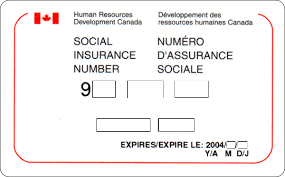North America NAFTA Agreement
Latest NAFTA Agreement
In November 2018, at the Buenos Aires G20 Summit, the North America NAFTA Agreement called CUSMA was approved and signed by Canadian Prime Minister Justin Trudeau, American President Donald Trump did the same with USCMA and Mexican President Enrique Peña Nieto approved and signed the T-MEC.
Founded in 1999, the G20 is an international forum that discusses policy related to the promotion of an international financial stability. A Group of Twenty composed of 19 countries and of the 28 member countries of the European Union.
What is USMCA CUSMA T-MEC
CUSMA stands for Canada, United States, Mexico Agreement, USMCA stands for United States, Mexico, Canada Agreement and T-MEC stands for Tratado Mexico, Estados Unidos, Canada. All three are characterized by NAFTA 2.0 or, better still, by the New NAFTA Agreement.
In November 2018, Canada, United States and Mexico renegotiated the NAFTA, the North American Free Trade Agreement. An agreement that has been ratified in Mexico in 2019 and signed by Trump in 2020. Also in 2020, Canada notified the United States and Mexico that the ratification process of the new NAFTA had been completed.
While a CUSMA agreement has been reached, the original NAFTA agreement, the world's largest free trade area, still remains in force. A NAFTA that has increased trade and economic growth in the three countries, a mutual and beneficial "entry into force" of the New NAFTA and a strong economic recovery once the COVID-19 is behind us.
The New NAFTA Expansion
A NAFTA - North American Free Trade Agreement signed by Canadian Prime Minister Brian Mulroney, U.S. President George H.W. Bush and Mexican President Carlos Salinas. The validation of the NAFTA draft took place in October 1992 and the NAFTA agreement came into effect on January 1st, 1994.
An agreement that generated economic growth in each of the member countries and that increased the living standards of the Canadian, the American and the Mexican people. Free trade had been established between Canada and United States since 1989, but NAFTA old and new broadened the agreement.
The New NAFTA Benefits
Since 1994, the positive effect of both the NAFTA and the New NAFTA Agreements generated an important economic growth and increased the living standards of the three countries. Positive effects of the NAFTA include increased trade, economic output, foreign investment and better consumer prices.
The trilateral merchandise trade between the three countries recently eached more than one trillion US$. The total merchandise trade between Canada and the U.S. has more than doubled and the trade between Canada and Mexico has grown by nine times.
The NAFTA trade deal had and still has an overwhelming positive effect on the Canadian economy. The NAFTA opened up new export opportunities, acted as a stimulus to build internationally competitive businesses and helped attract significant foreign investment.
Montreal Kits
North America NAFTA Agreement
Disclaimer Keep in Touch! Montreal Tourism
Privacy Policy Rachel Louise Barry Sitemap
Montreal Kits © All Rights Reserved 2018-2024
The information provided by Montreal Kits is informational only and has no legal value.











































